Protein feed ban must stay
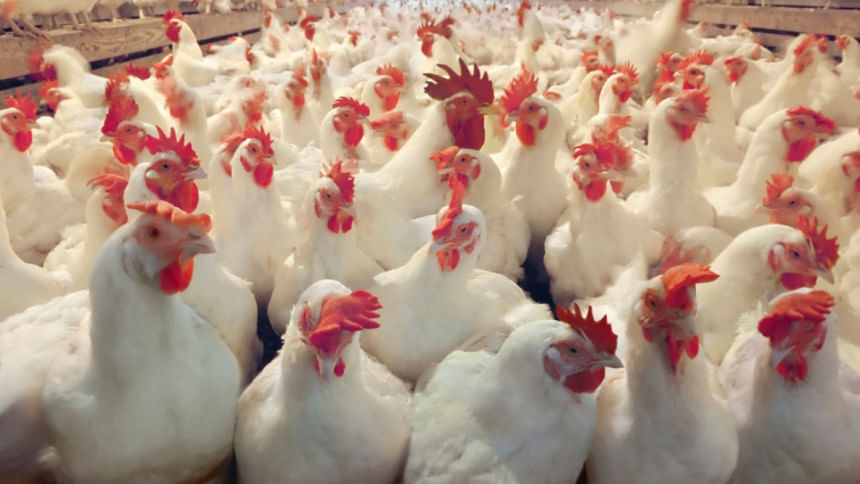
The poultry industry is keen to have the government lift the recent ban on import and sale of meat and bone meal (MBM), a protein concentrate that is used as feed for chickens. The industry's argument is that if it is forced to switch to the alternative fish meal, the production cost of rearing chickens would go up by 10 percent. The poultry industry is a Tk 25,000-crore industry employing an estimated eight million people with around one million entrepreneurs. The arguments for raising the ban appear weak when we count the public health cost (for 170 million people) of allowing the import of substandard MBM, which is a proven health hazard. The European Union (EU) banned its use in the common market back in 1994, followed by India in 2001 and Thailand in 2017. Indeed, as pointed out by an additional secretary at the fisheries and livestock ministry in a recent talk with our reporters, "MBM is now considered a risky element in poultry feed because it can carry harmful virus, bacteria and other ingredients harmful for human and animal health."
When we look at the sourcing of MBM, we find that legal imports come from European and Latin American countries that include Brazil, Argentina, Paraguay and Uruguay. As per a report published recently in The Daily Star, the Import Policy 2015-2018 has provisions to import MBM subject to certain preconditions. These are: the meal must be free of antibiotics, chromium (a heavy metal known to cause cancer) and radiation. Unfortunately for us, the authorities last year detected the import of low-quality MBM being brought in through the Chattogram port, and given the obvious health risks associated with such substandard MBMs, the authorities concerned recommended that the government ban its import altogether.
Very little is actually known about how many hundreds of thousands of tons of low-grade MBM have been imported into the country, given the fact that some importers have flouted the rules regarding their import. The size of the poultry sector is significant and this protein compound has already entered the food chain. Health practitioners have even linked MBM-affected poultry to the deadly mad cow disease. Since MBM comes in powder form (which is made from bones of animals, including both cow and goat, with bits of meat attached to the bones), it is very difficult to keep track of the compound once released from the port. It would be unrealistic to expect the authorities to track down whatever MBM shipments that have already entered the country.
While we agree with the poultry industry representatives' statement that they cannot be held responsible for the government's failure to check import of low-quality products, it is impossible to agree with the industry that MBM should continue to be imported—knowing full well the range of health hazards that it causes. Again, the argument that the sector cannot suffer because of the illegal activities of a section of businessmen falls flat when we consider that the government will have to spend billions of taka every year to provide healthcare services to millions of people because the poultry industry is unwilling to move to a safer feed for rearing chickens! That is the basic reality if the MBM ban goes away. Precisely how is the poultry industry going to cooperate with the government to ensure that only quality MBM is imported into the country? If it was as simple as that, then countries in the EU, India, and Thailand would not have banned MBM import.
So, what is to be done in the absence of MBM imports? It is fish meal. Yes, the cost of the meal is more than the harmful MBM, but it is made from vegetable sources and not animal bones. Soya bean and maize can, according to the fisheries ministry sources, meet the protein demand of poultry. And yes, the MBM ban will affect the local poultry market, but again, as pointed out by the concerned ministry, the rise in cost would ultimately end in raising the cost of poultry by Tk 1-2. That is a price hike that people can live with because the fallout from the general populace consuming MBM-fed poultry is thousands of times more expensive when we take into account the healthcare costs of treating cancer and other diseases.
Of course, the government will have to ensure stricter checks at the points of entry like our ports and the known smuggling routes over land. It has been our experience that whenever a ban comes into effect, a section of traders starts utilising illegal routes to bring in the barred commodity. It must be remembered that the mere banning of MBM will have little effect unless it is accompanied by a national awareness-raising campaign about the risks involved in continued use of the MBM protein and the target audience is not just the industry, but the consumers as well. The issue of meat-and-bone meal must be tackled head on, and one can only hope that the authorities will place public health a notch above an industry's perceived "losses".
Syed Mansur Hashim is Assistant Editor, The Daily Star.



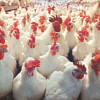
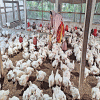
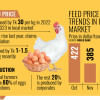
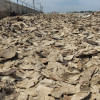


Comments